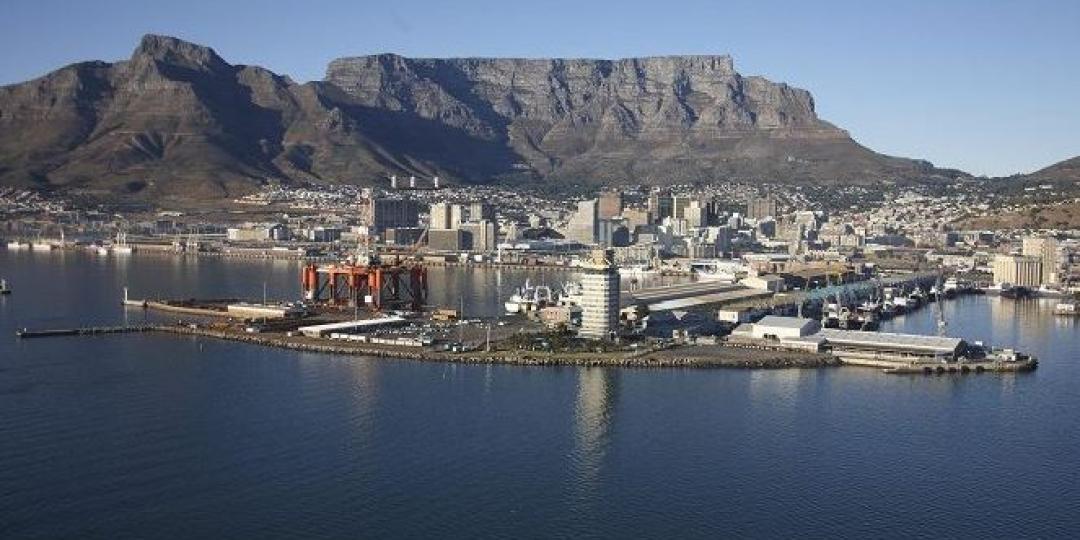The Port of Cape Town is without doubt one of the most beautiful working harbours in the world with Table Mountain as a backdrop, a view of Robben Island to welcome visitors, and the V & A Waterfront which incorporates part of the working harbour area.
Until recently, the Port of Cape Town was also recognised as being the most efficient South African port due to Durban becoming increasingly congested. This situation has, unfortunately, changed significantly over the past two years with the Port of Cape Town reaching crisis levels in late 2019 and continuing into 2020 with increasing numbers of vessels bypassing, trucks standing in queues stretching for kilometres, man working areas becoming the order of the day, equipment failures becoming the norm, and increasing interference from the unions. The situation became so dire that the Western Cape government was forced to intervene, several major shipping lines withdrew their vessels from calling Cape Town, and the private sector directly challenged the port authority to act in order to avoid the Western Cape suffering huge financial losses.
The reasons for this decline in service delivery are many, with some being glaringly obvious. Poor management and maintenance of equipment, larger vessels, adverse weather conditions, financial constraints and, of course, Covid-19 were obviously contributors to the decline. But there is another factor underlying all these other challenges, and that is simply that the Port of Cape Town has outgrown itself. With larger container vessels becoming more common, there is a need to increase capacity within the port. This relates to both imports and exports as the Western Cape strives to become an economic hub, the focus being on the export of wine, fresh fruit and other agricultural products. Capacity for refrigerated cargo will have to increase but this cannot be to the detriment of moving general cargo.
Recent reports indicate that the port is functioning far more efficiently with fewer delays but this is probably a ‘false positive’. Not all the shipping lines have reinstated Cape Town in their schedules, import volumes are increasing slowly, the current fruit season has ended, the wind is blowing, and vessels are delayed in Durban and Coega. All these factors result in low cargo volumes for Cape Town. From stakeholder engagement with the Port of Cape Town it is known that several key projects are under way such as increasing the reefer stack capacity, introducing a truck booking system, planning a truck staging area and, in the long term, introducing an automated gate system. It is here that the biggest problem arises. These are all long-term plans with significant financial implications, and none of them addresses the fundamental issue which is, to put it simply, that the port has no space left and there is nowhere to go! The harbour area cannot be expanded seaward due to geographical and environmental issues, and the Culemborg area brings its own problems, most of which are Transnet’s own internal issues. The Port of Cape Town is part of the city and expansion will ultimately impact the CBD, which substantiates the claim “there is nowhere to go”. But is this really so?
In 2010 Transnet Freight Rail (TFR) launched a new terminal in the Western Cape – Belcon Terminal – designed to act as an inland nucleus hub, serving as an extension of the Port of Cape Town for the consolidation of containers on rail. The 70 000m2 facility offers port stack dates, storage, cleaning and light repairs to damaged containers, monitoring of reefer temperatures, and pre-trip inspections. With the facility only 30km from the port, this allows truckers to increase the number of loads per day as they can avoid traffic congestion into and out of the city and also avoid congestion in the port itself. Furthermore, Belcon is registered with Sars as a container terminal with a Sars branch office situated within a short distance. Railing containers to and from Belcon has several advantages:
(a) Cheaper than road transport
(b) Positive green impact on the environment
(c) Removes trucks from the freeways during peak-hour traffic to and from the city
(d) Rules out congestion in the Port of Cape Town
(e) Belcon is situated in a large industrial area with obvious benefits
(f) As opposed to City Deep, Belcon is within the same Customs control area and may be seen as part of the “first port of entry”.
It is evident that Belcon is an ideal solution to the problems experienced within the Port of Cape Town but, just as clear, is the fact that Belcon must be seen as a failure since its inception in 2010. Infrastructure has not been improved or maintained, it is not utilised to its full potential, marketing is non-existent, there are issues within Transnet relating to the use of Belcon, and the Port of Cape Town has on several occasions indicated that Belcon is not a priority.
Transnet National Ports Authority (TNPA) is however willing to budget approximately R250 million on a helicopter for Cape Town (this is a conservative figure). The helicopter is to be used for transferring pilots to vessels when weather does not allow pilot boats to operate, which indicates that the aircraft would be idle for months at a time and maintenance costs will increase year on year. It should be noted that a private company offered TNPA the use of its aircraft and crew at a substantially reduced cost but was turned down due to procurement procedures, which is another way of preventing private enterprise from gaining a foothold in Transnet. Additional funding will be required for the truck staging area and increasing the reefer stack capacity - but surely these funds would be better utilised in the upgrade of Belcon to become a fully functional container terminal as an extension of the port for which it was designed?
Belcon must be seen as a priority and as a long-term solution to the challenges facing not only the Port of Cape Town, but also the city of Cape Town and, indeed, the Western Cape. Converting from road to rail is the way forward but increasing capacity within the existing port will only bring more road congestion to the city while there is a perfectly good rail link between Belcon and the port. Transnet should therefore shift focus from long term planning (truck staging area only to be available in 2026!!) to an existing purpose-built solution – Belcon. Of course, there is one major caveat to this, and that is the lamentable performance of TFR in recent times, and there are doubts as to its ability to service Belcon adequately. Good management can overcome most hurdles and this is what is required to solve what is not really that great a problem. Belcon must simply be utilized to its full potential before the Port of Cape Town reaches its next crisis.










